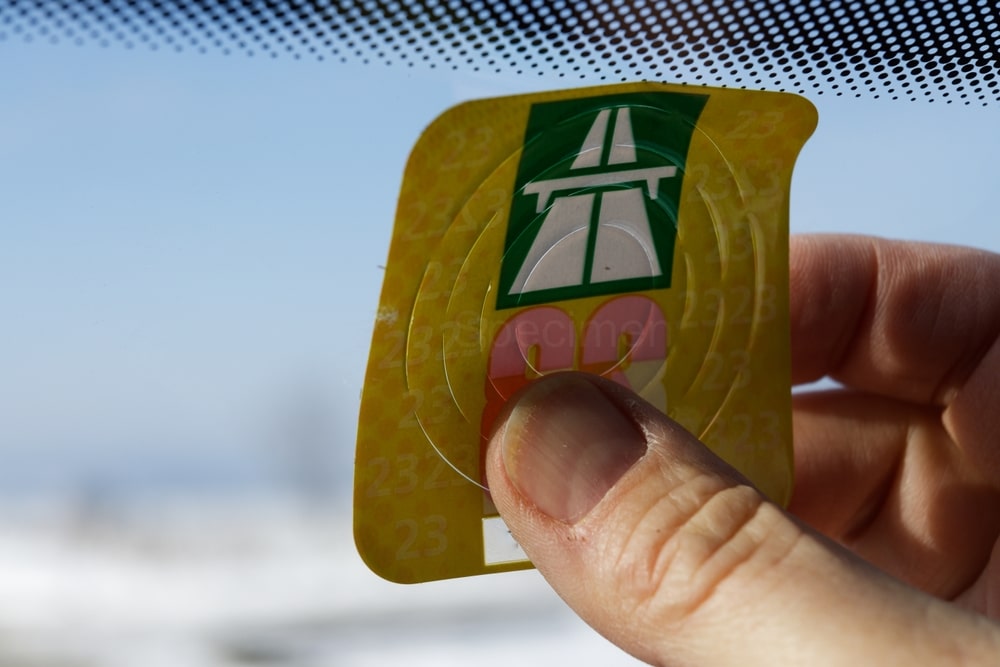Switzerland beckons with beautiful alpine landscapes, delicious chocolate and world-famous luxury watches. However, if you have planned a holiday in the country of the Swiss Confederation, you should definitely familiarise yourself with the regulations on Swiss roads beforehand.
Motorway use in Switzerland is only possible with a vignette
Switzerland charges a toll for the use of its motorways, which is paid with the purchase of a vignette. In the past, adhesive labels were available without exception. Since 01.08.2023, however, digital e-vignettes have also been available. This simplifies planning enormously. Instead of stopping along the way to pay the toll and purchase the small sticker, holidaymakers can simply buy the e-vignette online. It is suitable for cars, motorhomes, campers and vans with a gross vehicle weight of up to 3.5 tonnes. For vehicles that are above this, a heavy vehicle charge must be paid. The vignette is valid for one year and can then be extended. Anyone who regularly travels to Switzerland or uses it as a transit country can opt for an automatic extension.
Speed limits in Switzerland may vary
Travellers travelling by car or light motorhome are allowed to drive a maximum of 50 km/h in built-up areas, just like in Germany . Outside built-up areas, a speed limit of 80 km/h applies. On expressways, 100 km/h are permitted. Unlike in Germany, there are no motorway sections in Switzerland without a speed limit. More than 120 km/h are not allowed. If necessary, the permitted speed may also be lower. Fines are to be expected for violations of the speed limit. These should be paid at all costs, otherwise criminal proceedings or a driving ban in Switzerland may result.
Observe special right of way regulations
The right of way regulations make a significant contribution to road safety. Therefore, holidaymakers should definitely find out about the situation in the destination country before travelling. Due to the high differences in altitude, there is a special regulation for mountain roads in Switzerland: the vehicle that goes up has the right of way. At the same time, however, particularly heavy vehicles have priority over lighter ones – regardless of whether they are driving uphill or downhill.
Always drive with lights on
In Switzerland, lights are compulsory for all motor vehicles, at all times of the day. Daytime running lights and dipped beams are permitted. This is to ensure better visibility. Violations will be punished with appropriate fines. Usually, only the front headlights come on with daytime running lights. The rear light remains dark. When driving through a tunnel or in bad weather conditions, the dipped headlights must therefore always be switched on.
Color-coded parking
Parking in Switzerland is organised according to so-called zones within built-up areas. In the blue zone, free parking is possible for one hour. However, a parking disc must be used. Parking spaces in the white zone are subject to a fee. The yellow parking area, on the other hand, is reserved for certain vehicles. The colour coding makes it easy to see which zone the car park belongs to. Stopping and parking bans are not marked with signs, but with lines at the edge of the road. A line interrupted by crosses indicates a parking ban. If the line has been drawn, there is a ban on stopping.
Pay attention to safe driving on the mountain
The beautiful panorama of Switzerland is particularly evident when driving over the passes. Here, however, not only the landscape should be admired, but also more attention should be paid to safety. This is especially true for holidays with heavy vehicles such as motorhomes. Careful and anticipatory driving at a reduced speed goes without saying. To prevent the brakes from overheating, it is also advisable to use the engine brake. If there is nevertheless an unpleasant smell that suggests that the brakes are no longer cooperating, it is essential to take a forced break.


